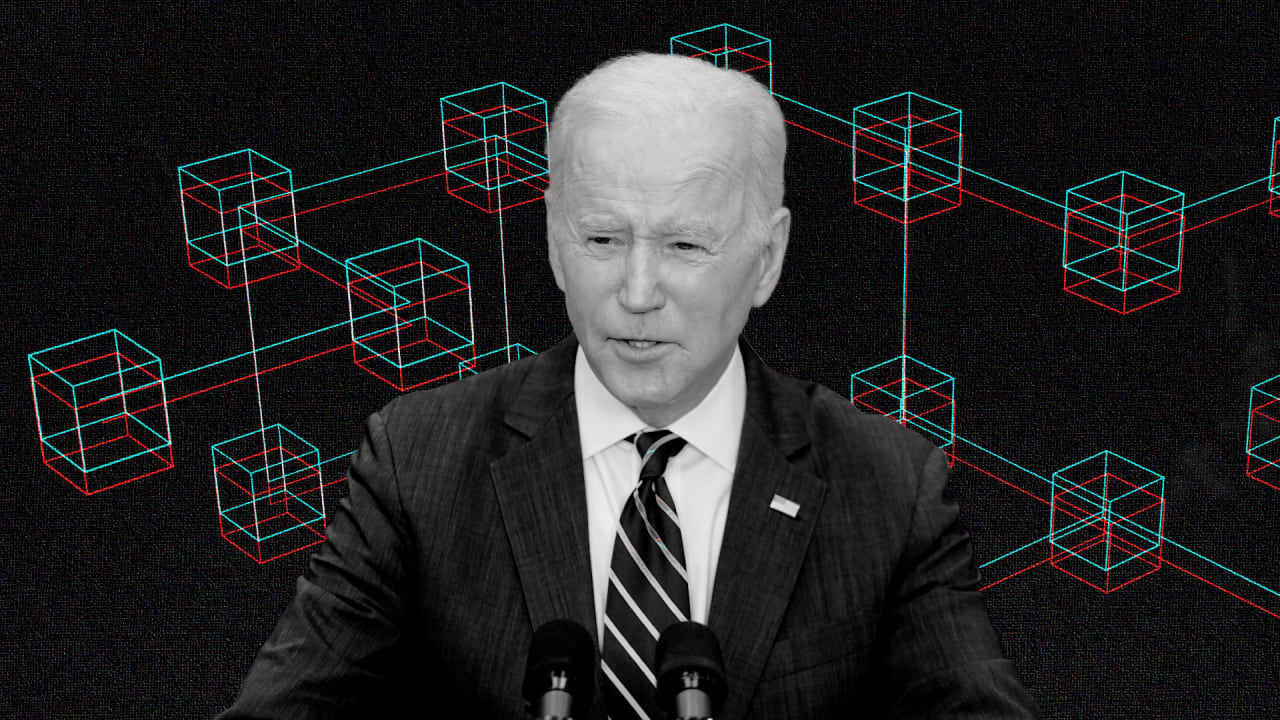President Biden’s executive order on crypto
[ad_1]

President Biden released his long-awaited executive order (EO) on cryptocurrency on March 9. The crypto community reacted with relief. The price of Bitcoin went up 8.4% that day and crypto leaders from Ripple CEO Brad Garlinghouse to Coinbase’s policy chief Faryar Shirzad publicly praised the order. Biden’s order certainly could have been worse. But it may not be the panacea the community thinks it is, either.
Let’s start with the good news.
There’s a lot in this executive order to either like or at least not mind. It states a clear desire to protect consumers and investors. Any mainstream crypto supporter wants consumer protection too. No legitimate crypto business wants to see people scammed by fraudulent ICOs or anything else.
The order also seeks to “mitigate the illicit finance and national security risks posed by the illicit use of digital assets.” This makes a lot of sense. There are threats to national security by the multiple illicit items that can be untraceable when purchased on browsers like Tor. Any bad actor currently watching the situation in Russia has to be thinking: “We should move as much of our economy as possible into crypto to evade the sanctions that are killing the Russian economy.” Putin’s lack of foresight on this issue created a cautionary tale for other bad actors, and a clear need for this provision in the EO.
Another provision aims to “promote U.S. leadership in technology and economic competitiveness to reinforce U.S. leadership in the global financial system.” This section directs the Department of Commerce to start prioritizing/creating crypto-related jobs in the U.S. That’s very good, and if there is a Biden cabinet member who can succeed with this, it’s Commerce Secretary Gina Raimondo.
There’s a tremendous opportunity for the nation to capture the bulk of crypto-related jobs and provide a significant boost to the economy. But it will only happen if the regulations are not overly restrictive, if there is a set of clear and fair rules, and if the government actually, proactively, uses its assets and resources to lure crypto businesses here. Our government does not have a great track record of doing this.
Finally, on the plus side, the EO seeks to “promote equitable access to safe and affordable financial services.” We don’t know anyone in the crypto world who thinks that the U.S. financial system is currently accessible, affordable, or fair. The very existence of crypto is a rejection of the status quo. Underrepresented groups and the underbanked already utilize crypto to a higher degree than the fully banked, so whatever the crypto community can do to expand access and equity makes sense.
However, most of these are just vague goals with few resources or specific policy ideas dedicated to any of them. The rest of the EO is worrisome. Most concerning is the clear continuation of authority by the federal government: the Department of the Treasury, Securities and Exchange Commission (SEC), Commodity Futures Trading Commission (CFTC), the FDIC, and others, to regulate crypto however they see fit.
To be clear, this authority existed before the order was issued, but by reinforcing it so strongly in the first two provisions of the EO, the administration is making it abundantly clear that regulations the industry may not like are still likely coming.
Before the EO, the federal government didn’t have a completely clear way to regulate the asset class. For example, the SEC classifies it as a security. The CFTC classifies Bitcoin (BTCUSD) specifically, as a commodity while the Treasury calls it a currency.
Yet the government can decide how it should be taxed and whether margin borrowing is allowed. What reserve requirements should exist for stablecoins. What types of disclosures are necessary. Whether there should be a federal license required for exchanges. And so many more. Everything the crypto community fears is still very much on the table.
So the key problem remains. Any anti-crypto regulator, like SEC Chair Gary Gensler, still has all the power they need to crack down on the industry in any way they want. Yes, Congress may have to approve some of these measures, and killing things in Congress these days isn’t particularly difficult. But the Treasury Department still has broad executive authority that should not be underestimated.
The next steps for the sector are clear: Get your political act together. The greatest risk facing cryptocurrency is not technology or the banking system. It’s regulation. And while there are a lot of people in this country who care about crypto, and while the industry itself has lots of money that it could spend on elections and candidates, there have been few successful efforts—if any—to organize politically.
It’s not as hard as they think. Every policy output is the result of political input. Every elected official looks at every issue solely in the context of their next election. If they think you can either help them win reelection, or if they think that defying you could cause them to lose the next election, they’ll do what you want. If they don’t think you can impact the next primary, you don’t matter.
Right now, no one thinks the crypto community can have any impact on any election. Until the community invests real time and resources into politics, no one will fear crypto. And as a result, the Treasury and all of the other relevant agencies will feel free to do whatever they want. The executive order reaffirmed that with one simple sentence: “The Order also encourages regulators to ensure sufficient oversight and safeguard against any systemic financial risk posed by digital assets.” In other words, they can pursue any regulation, any crackdown, any restriction that pops into their minds. Still. That’s a major problem.
Could the executive order have been worse? Sure. It could have laid out clear regulations that restrict the sector in multiple ways. It didn’t do that. But has anything really changed? No. The risks are the same. The opportunities are the same.
In other words, this executive order is not nearly as helpful as the community seems to think. There’s still a lot of work and risk ahead. No one should be exhaling sighs of relief just yet.
Bradley Tusk is a venture capitalist, writer, philanthropist, and political strategist.
Bob Greenlee is the COO of Tusk Holdings.
[ad_2]
Source link






